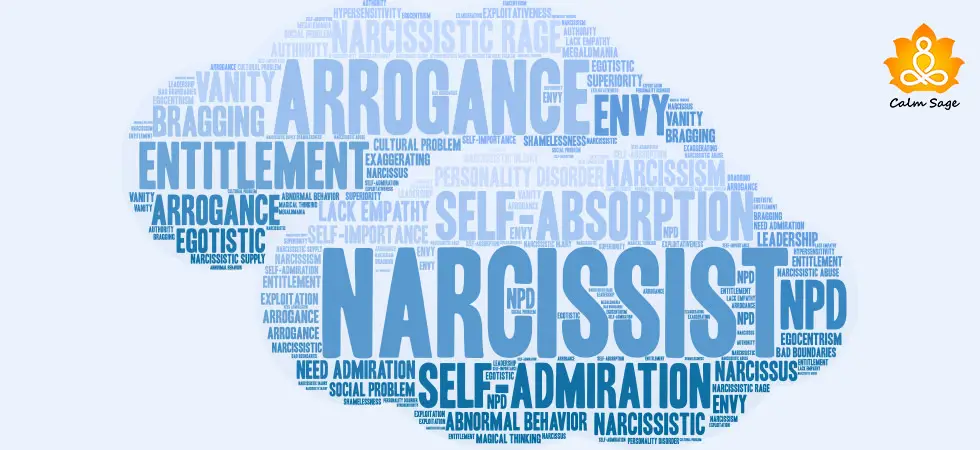Is Vindictive Narcissism Real? Here Are The Signs And Ways to Deal With It

You might’ve been wronged in your life once; maybe even held a grudge against someone, but where your grudge and resentment might’ve faded with time, some can’t seem to let go of theirs. Human behavior is complicated, and amid that complexity exists a personality trait that often goes unnoticed until its impact is deeply experienced – vindictive narcissism.
Albeit an unofficial term, vindictive narcissism is a term nonetheless, that is used to describe a person – a narcissist – who holds deep grudges and acts out in revenge or vengeance when they feel they’ve been wronged.
Before we fully understand what vindictive narcissism is, let’s take a brief look at what narcissistic personality disorder or NPD is. People with NPD often have an inflated sense of self-importance, an almost constant need to be admired, and a lack of empathy. While not every narcissist might have similar traits, even vindictive ones, it’s important to understand this darker side of narcissism.
What Is Vindictive Narcissism?
Vindictive narcissism is an intense form of narcissistic behavior that is often characterized by a strong desire to seek revenge and a desire to cause mental or emotional harm to people whom a narcissist believes have wronged them. This vindictiveness can worsen the challenges of narcissism and related traits, as it adds hostility and aggression that can catch everyone off guard.
Narcissists take things personally, so they are easily offended and upset by others. This can cause “narcissistic injuries” and evoke feelings of insecurity, resentment, and shame.
Some common examples of vindictive behavior from narcissists can include;
- Being excessively critical of others or belittling others
- Keeping a list of people who they believe have wronged them
- Sabotaging someone because they feel wronged
- Intentionally making others feel jealous
- Giving backhanded compliments, etc.
Signs of Vindictive Narcissism
How to know if you’ve fallen into the trap of the vindictive behavior of a narcissist, or if you’re a vindictive narcissist? Here are some signs to watch out for;
- Holding onto perceived insults and holding grudges
- Using emotional manipulation to control others
- Spreading false and malicious rumors to ruin others’ reputations
- Unable to understand and empathize with the feelings of others
- Experiencing unpredictable bouts of anger
- Undermining or sabotaging the efforts of others
- Refusal to take responsibility for their actions or blaming others for their actions
- Feeling threatened by the success of others
- Feeling a relentless need to seek revenge or vengeance for minor offenses
Vindictive narcissism stems from a mix of genetic, situational, and psychological factors. Your early childhood experiences and an absence of healthy coping mechanisms can contribute to the development of this destructive narcissistic personality trait.
What Triggers Vindictive Behavior?
Knowing what triggers vindictive behavior in narcissism can help you or your loved one seek the right help and take the steps to address the behavior.
One study suggests that “narcissistic rage” can be triggered by abandonment issues, insecure attachment, and insecurities, especially in vulnerable narcissists. In overt narcissism, triggers for such behavior can be around competition, accomplishments, and the presence of a “God Complex”.
In vindictive narcissism, triggers can revolve around one’s “ego wound” that causes feelings of shame, humiliation, and insecurity. Psychologists believe that this behavior can be a defense mechanism to boost a narcissist’s self-esteem and manage emotions when they feel threatened.
A narcissist can be triggered by the following situations;
- When they are challenged
- When they are rejected or denied “special treatment”
- When they are given an order by an authoritative person
- When they feel humiliated or embarrassed
- When they are held accountable for their actions
How to Deal With a Vindictive Narcissist?
It can be difficult to deal with a vindictive narcissist. Here are some effective ways to handle a vindictive narcissistic person;
1. Set Boundaries:
You need to set and define personal boundaries to protect yourself from their emotional manipulation and harm. Only by setting limits to what’s acceptable and what’s not, can you deal with a vindictive person.
2. Be Emotionally Distant:
To deal with a vindictive narcissist, you need to maintain emotional distance. Only by staying emotionally distant from the narcissist can you shield yourself from their manipulation.
3. Be Calm:
When dealing with a vindictive narcissist, remain calm and collected rather than reacting with your emotions. Only with calmness can you disarm a vindictive narcissist, bent on seeking revenge.
4. Avoid A Power Struggle:
You need to understand that narcissists thrive on power struggles, so avoid getting in one with a vindictive narcissist. Getting involved in unnecessary power battles can leave you emotionally exhausted and defenseless.
5. Seek Support:
Try to surround yourself with supportive people such as close friends, family, and even mental health professionals who are readily available to offer support and help you understand different perspectives.
6. Take Care of Yourself:
When dealing with a narcissist, don’t forget to take care of your mental and emotional well-being. Try to engage in activities that help you relax and reduce your stress.
7. Be Assertive:
You need to be direct and assertive with a narcissist. Clearly express your concerns and needs, and be firm. Don’t be rude; be respectful when communicating with a vindictive narcissist. Avoid getting aggressive or sarcastic with them; be assertive, but be kind too.
8. Don’t Overshare:
Remain cautious when you’re talking with a vindictive narcissist. Don’t share your personal information that a narcissist might use against you. Be succinct and avoid oversharing.
9. Record Incidents:
Another way of dealing with a vindictive narcissist is to keep a record of all incidents, including the date, time, and details of an incident. This will help you keep a factual account of their vindictive behavior.
10. Seek Professional Help:
When vindictive narcissism traits and behaviors seem severe, then don’t hesitate to seek professional help and advice. A professional can offer the right help and insights to deal with a vindictive narcissist.
If your loved one is a vindictive narcissist, then you can encourage them to seek professional support. A professional can offer treatment such as psychotherapy to help them. Therapy approaches such as cognitive-behavioral therapy (CBT) and dialectical behavioral therapy (DBT) can help address vindictive issues. A therapist can also help a narcissist develop healthy coping mechanisms to deal with their traits.
Wrapping Up…
Vindictive narcissism might be the most underrated narcissistic type, but it’s no less challenging to deal with. By understanding the signs and triggers of vindictive behaviors in narcissism, you can learn to deal with such personalities effectively. Whether it’s through setting boundaries or seeking professional help, it’s important to prioritize your well-being.
I hope this article helped you understand this complex narcissistic personality trait. If you or your loved one is living with vindictive narcissistic traits, then it’s recommended you seek help and support from a professional.
Did you enjoy reading this article? Let me know your thoughts on vindictive narcissism in the comments below.
Take Care!




















